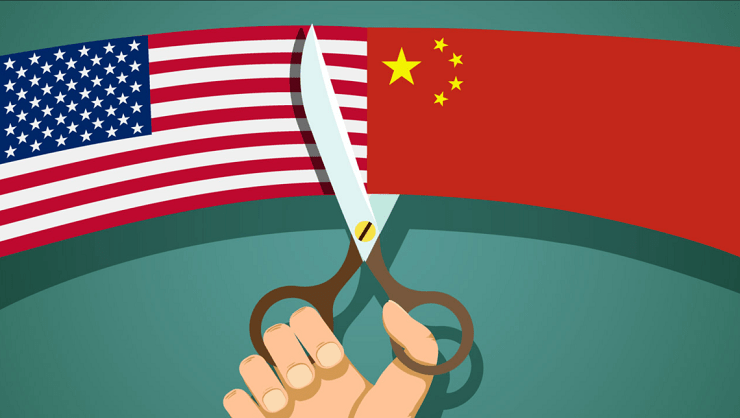The Scientific Cold War is real, and we’re all losing. New study reveals how US-China tensions are slowing global research.
Many in the academia have voiced the concern that the counter-productive, politically-motivated investigations scrutinizing the cooperation between the world’s 2 major science powerhouses would eventually backfire and hamper the progress of science research. However, few have ever quantified the real impact.
Not anymore. In a study published in the journal PNAS, titled “The impact of US–China tensions on US science: Evidence from the NIH investigations,” researchers delve into the repercussions of foreign influence investigations initiated by the National Institutes of Health (NIH) on U.S. scientists’ productivity, particularly those engaging in collaborations with Chinese counterparts. The study sheds light on a significant decline in productivity among researchers with ties to China, compared to those collaborating internationally, a trend exacerbated by the scrutiny of NIH investigations.
Spanning from 2010 to 2021, the research analyzed a vast dataset of over 113,000 scientists, revealing a stark reduction in productivity coinciding with investigations. The research shows that affected scientists saw a modest 2.1% drop in the number of publications. However, the impact of their work, measured by citations, plummeted by 10.1%. When considering a broader range of publications, these researchers faced a 10.5% decline in total citations, indicating a substantial hit to their scientific influence.
Interestingly, the study found that certain research areas were hit harder than others. Fields heavily reliant on National Institutes of Health (NIH) funding and those with strong U.S.-China collaborations saw the most significant declines.

The fallout appears to extend beyond just productivity. The study suggests that some affected scientists may be leaving the United States, potentially leading to a brain drain in critical research areas.
Among those impacted, Asian scientists bore the brunt of the decline, experiencing steeper drops in both NIH-funded and China-funded research output.
The effects of this scrutiny seem to be far-reaching, touching scientists across various institutions, career stages, and productivity levels. This suggests a broad impact on the U.S. scientific community rather than an isolated phenomenon.
Perhaps most concerningly, the study indicates that fields most affected by these investigations have seen slower scientific progress not just in the U.S., but in China as well, when compared to other countries. This hints at a potential global slowdown in critical areas of scientific research.
The study also emphasizes how international scientific collaborations have historically propelled advancements, yet recent political rifts, notably between the U.S. and China, have cast a shadow over such partnerships. The China Initiative, spearheaded by the U.S. Department of Justice from 2018 to 2022, aimed at safeguarding national security interests, with a focus on countering perceived threats from China, particularly concerning intellectual property and technology.
Notably, the NIH investigations, primarily targeting non-disclosure of foreign resources in research grants, have rattled the scientific community. Cases revealed a disproportionate focus on activities involving China, with implications ranging from funding suspension to criminal investigations, painting a complex picture of the repercussions of policy interventions on scientific endeavors.
The study’s findings underscore the delicate balance between scientific collaboration and political dynamics, highlighting how policies can inadvertently stifle scientific progress. By examining publication trends in life sciences, the research illuminates a tangible impact on scientists with historical ties to China, portraying a nuanced narrative of how political tensions reverberate through the scientific landscape.
As the global scientific community grapples with evolving geopolitical landscapes, this study serves as a poignant reminder of the interconnectedness between scientific advancement and geopolitical realities, urging a nuanced approach to policy interventions that safeguard innovation while nurturing international collaborations for the collective pursuit of knowledge.
Source: China Academy, Aug 9, 2024. https://thechinaacademy.org/scientific-cold-war-how-us-china-rivalry-is-freezing-global-research/#
